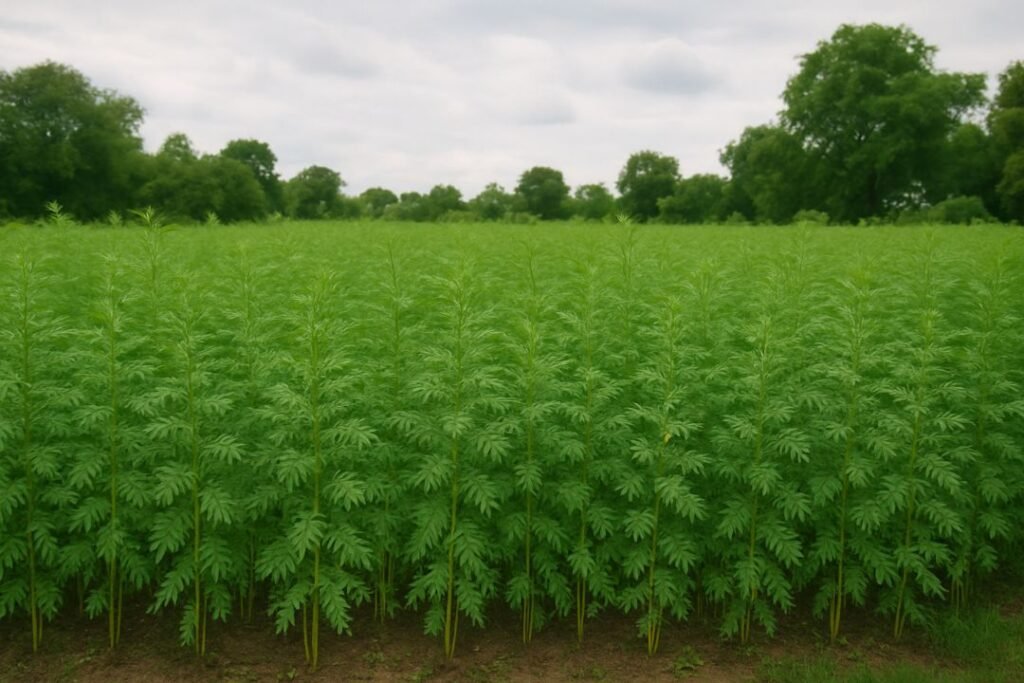
Modern farming faces mounting challenges: declining soil health, reliance on costly synthetic fertilizers, and growing climate concerns. For farmers in the USA, Canada, UK, and EU, green manure offers a nature-based, cost-effective solution to these issues. Increasingly, Western farmers are turning to green manure to boost soil fertility, reduce environmental impact, and enhance long-term profitability. But what exactly is green manure, and why is it becoming a cornerstone of sustainable agriculture? Let’s explore.
What Is Green Manure?
It refers to crops grown specifically to be incorporated into the soil, enriching its fertility and structure. Unlike cash crops, green manure crops are not harvested for sale but are tilled back into the earth to improve soil health. Common examples include:
- Legumes: Clover, vetch, and alfalfa, which fix nitrogen in the soil.
- Cereals: Rye and oats, which add organic matter.
- Brassicas: Mustard and radish, which help suppress weeds and pests.
Unlike other cover crops, which may primarily prevent erosion or retain moisture, it focuses on enhancing soil nutrient content. According to the USDA Natural Resources Conservation Service, green manure can increase soil organic matter by up to 20% over a few seasons, making it a powerful tool for sustainable farming.
Top Benefits of Green Manure
It provides a range of benefits that address both economic and environmental challenges in modern agriculture. Below, we break down the key advantages.
Boosts Soil Fertility through Nitrogen Fixation
Leguminous green manure crops, such as clover and vetch, naturally fix atmospheric nitrogen through a symbiotic relationship with soil bacteria. This process can add 50–200 kg of nitrogen per hectare, significantly reducing the need for synthetic fertilizers . Consequently, farmers can cut input costs while promoting long-term soil fertility through enhanced nutrient cycling.
Improves Soil Structure and Moisture Retention
Incorporating green manure adds organic matter, which improves soil aggregation and prevents compaction. For instance, a study by the University of California found that soils with green manure had 30% better water infiltration rates than those without. This leads to:
- Enhanced water retention, crucial for drought-prone regions.
- Reduced soil erosion, protecting topsoil during heavy rains.
- Improved aeration, fostering healthier root systems.
Suppresses Weeds and Breaks Pest Cycles
The dense biomass of green manure crops naturally suppresses weed growth by outcompeting them for light and nutrients. Some species, like mustard, release allelopathic chemicals that inhibit weed seed germination. Additionally, it disrupts pest and disease cycles by altering the soil environment, reducing reliance on chemical pesticides .
Environmental and Climate Benefits of Green Manure
Green manure aligns with climate-smart farming by:
- Carbon sequestration: Incorporating green manure into the soil can sequester up to 1–2 tons of carbon per hectare annually .
- Reduced nutrient runoff: Green manure crops capture excess nutrients, preventing leaching into waterways.
- Lower greenhouse gas emissions: By reducing fertilizer use, farmers can cut emissions associated with fertilizer production.
These benefits make it a key strategy for eco-conscious farmers aiming to meet sustainability goals.
Regional Case Studies from Western Countries
Farmers across Western countries are successfully integrating green manure into their operations. Below are some examples:
These case studies highlight how it delivers measurable results across diverse climates and farming systems.
Challenges and Limitations Green Manure
While itoffers significant benefits, it’s not without challenges. For instance, proper timing is critical- planting or incorporating ite at the wrong time can reduce its effectiveness. Additionally, mismanaged green manure, such as late incorporation, may lead to nitrogen tie-up, temporarily reducing nutrient availability for subsequent crops. Finally, the initial cost of seeds and labor can be a barrier for some farmers, though long-term savings often outweigh these expenses.
Best Practices for Successful Green Manure Use
To maximize the benefits of green manure, farmers should follow these best practices
- Choose the Right Crop: Select species based on regional climate and soil needs. For example, clover thrives in temperate climates, while mustard suits warmer regions.
- Timing Matters: Plant in the fall or early spring, and incorporate before flowering to optimize nutrient release.
- Integrate with Crop Rotation: Combine with crop rotation to enhance soil health and break pest cycles.
- Monitor Soil Conditions: Test soil regularly to ensure nutrient deficiencies are addressed.
For detailed guidance, consult resources like the Sustainable Agriculture Research and Education program.
Economic and Sustainability Benefits
Cover crops offer compelling economic advantages. By reducing the need for synthetic fertilizers and herbicides, farmers can significantly lower input costs. For example, the USDA notes that such practices can reduce fertilizer expenses by improving soil nutrient content, potentially leading to substantial savings over time . Additionally, farmers may qualify for sustainability grants, such as those offered under the EU Common Agricultural Policy or USDA’s Conservation Stewardship Program.
Conclusion
Green manure is a smart, sustainable choice for modern farmers looking to improve soil health, reduce costs, and combat climate change. By boosting fertility, enhancing soil structure, and aligning with eco-friendly practices, these crops support both profitability and environmental stewardship. This planting season, consider incorporating them into your farming system. Have you tried these methods on your farm? Share your experiences or ask questions below—we’d love to hear from you!
Check out our detailed post on No-Till Farming: Benefits and Challenges.
My name is Mr. Urban Ujava, I would like to cultivate Green Manure in Namibia.